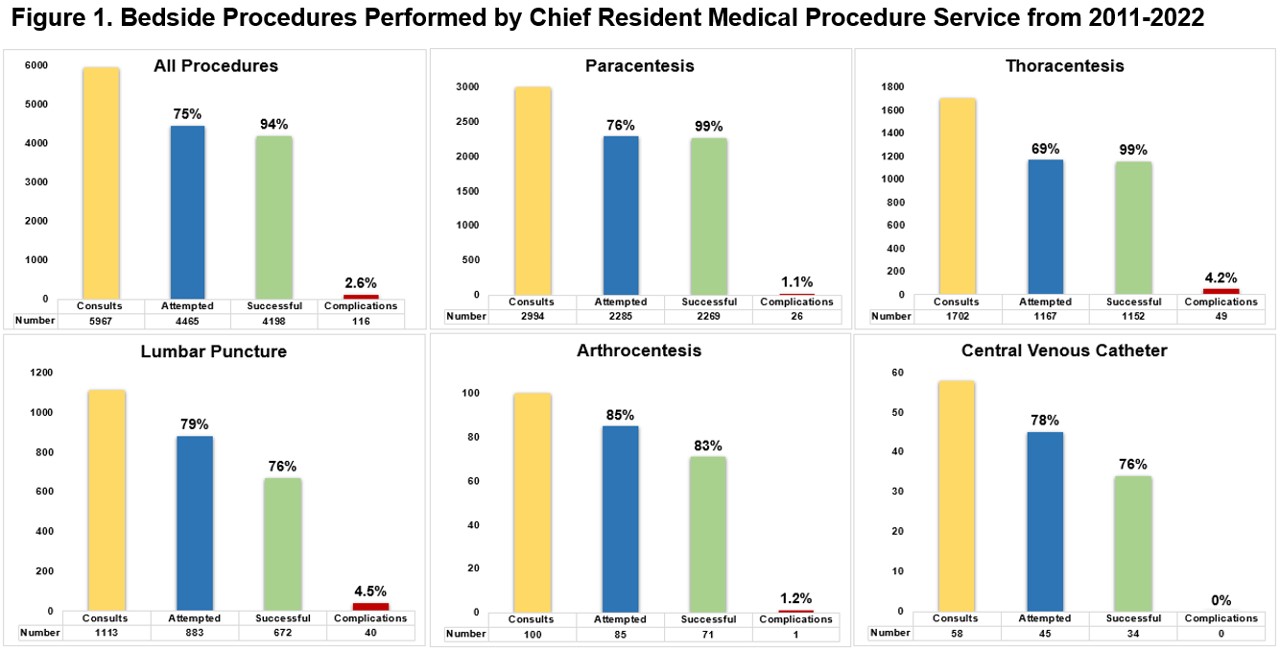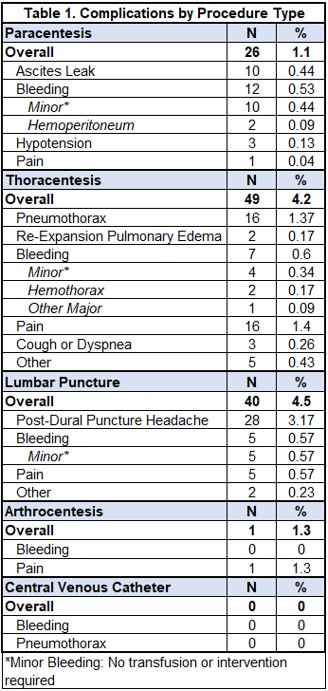Background: Several institutions have implemented a medical procedure service (MPS) to improve timeliness of bedside procedures and standardize performance and training of procedures by internal medicine (IM) residents (1-2). A critical barrier to starting an MPS has been a lack of experienced proceduralists (3). In 2011, our IM residency program created an MPS led by a Chief Resident in Quality and Patient Safety (CRQS) funded by the Department of Veterans Affairs (VA). Few studies have evaluated the impact of MPSs (2), and none describe an MPS led by an IM chief resident. Here we describe our 10-year experience of a chief resident MPS.
Methods: We performed a retrospective observational study from 2011 to 2022 of all paracenteses, thoracenteses, lumbar punctures, arthrocenteses, and central venous catheterizations performed by our MPS at a 462-bed VA hospital and 716-bed county hospital in San Antonio, Texas. All procedures were performed by categorical IM interns under the supervision of an IM chief resident. Data were collected from the MPS procedure log which included number of procedure attempts, success rates, and complications (immediate and within 24 hours).
Results: Between 2011 and 2022, the chief resident MPS received a total of 5,967 consults. A total of 4,465 (75%) consults resulted in a procedure attempt and the remaining 1,502 (25%) consults were deferred due to insufficient volume of fluid to drain, procedure contraindication, or other reason. The overall procedure success rate was 94% with a complication rate of 2.6% (Figure 1 and Table 1). Success and complication rates, respectively, were 99% and 1.1% for paracentesis (n=2285); 99% and 4.2% for thoracentesis (n=1167); 76% and 4.5% for lumbar puncture (n=883); 83% and 1.2% for arthrocentesis (n=85); and 76% and 0% for central venous catheterization (n=45).
Conclusions: IM chief residents trained in ultrasound-guided procedures can lead an MPS with high procedure success rates and low complication rates that are comparable to reported rates from MPSs led by experienced proceduralists (1). An MPS led by a chief resident is a novel approach to overcome the limited availability of experienced proceduralists to establish an MPS. Unique potential benefits of MPSs include improvements in patient throughput, procedural educational of trainees, and cost savings which deserve further investigation in future studies.


